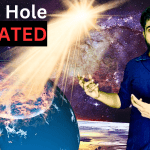- Exploring the Causes of the Big Freeze: What Could Have Triggered the End of the Universe as We Know It?
- The Big Freeze Theory: Is Our Universe Doomed to End in Ice?
- From Heat Death to Big Freeze: The Evolution of Cosmological Theories on the Fate of the Universe
- What Can We Learn from the Big Freeze Theory? Insights into the Physics of the Universe
- How Will Life Survive the Big Freeze? Examining the Possibility of Life Beyond Our Sun
- The Big Freeze and the Multiverse: Is This the Fate of All Universes?
- The Big Freeze and the Search for Dark Energy: Could This Mysterious Force be Responsible for the End of the Universe?
- The End of Time: A Philosophical Look at the Implications of the Big Freeze Theory
- From Quantum Mechanics to the Big Freeze: Understanding the Physics of the Universe’s End
- The Big Freeze and the Future of Humanity: Can We Avoid Our Ultimate Fate?
- Conclusion.
Exploring the Causes of the Big Freeze: What Could Have Triggered the End of the Universe as We Know It
The Big Freeze Theory is a fascinating topic that has captivated scientists and enthusiasts alike for decades. It proposes that our universe is on a trajectory towards a cold, dark end, leaving behind no trace of the vibrant energy that characterizes our cosmos today. In this article, we will explore the potential causes of the Big Freeze, and attempt to answer the question: what could trigger the end of the universe as we know it?
One of the primary factors driving the Big Freeze is the second law of thermodynamics. This law states that all systems will naturally move towards a state of maximum entropy, or disorder, over time. As the universe continues to expand, it will eventually reach a point where all the energy within it is evenly distributed, resulting in a state of maximum entropy. At this point, the universe will be too cold and too dark to sustain any life or activity.
Another factor contributing to the Big Freeze is the continued expansion of the universe. As the universe expands, the distance between galaxies and stars grows, leading to a decrease in the density of matter and energy. This decrease in density means that gravity becomes weaker, and eventually, the gravitational pull will no longer be strong enough to hold galaxies and other structures together. At this point, the universe will become an empty, dark void.
There are also theories that suggest that the presence of dark energy could play a role in the Big Freeze. Dark energy is a mysterious force that is thought to be responsible for the accelerating expansion of the universe. If this acceleration continues to increase, it could eventually cause galaxies and other structures to become so far apart that they are unable to interact with each other in any meaningful way.
The Big Freeze Theory: Is Our Universe Doomed to End in Ice?
The Big Freeze Theory is one of the most intriguing and controversial theories about the fate of the universe. According to this theory, our universe is destined to end in a state of maximum entropy, also known as the “heat death” or the “Big Freeze”. In this article, we will explore the Big Freeze Theory in more detail and examine the evidence for and against it.
The Big Freeze Theory predicts that as the universe continues to expand, it will eventually reach a state where all the energy within it is evenly distributed, resulting in a state of maximum entropy. At this point, the universe will be too cold and too dark to sustain any life or activity. The temperature of the universe will approach absolute zero, which is the temperature at which all molecular motion stops.
So, is the Big Freeze Theory a realistic prediction of the future of our universe? The answer is not entirely clear. While the Big Freeze Theory is supported by many observations and calculations, there are still some uncertainties and unknowns. For example, it is not yet clear whether dark energy, which is thought to be responsible for the accelerating expansion of the universe, will continue to dominate and eventually cause the Big Freeze.
Despite these uncertainties, the Big Freeze Theory remains a compelling and fascinating area of research. It raises important questions about the nature and fate of the universe, and challenges our understanding of fundamental physics and cosmology.
One of the most exciting aspects of the Big Freeze Theory is the possibility of discovering new physics and new ways of understanding the universe. For example, some scientists have proposed that the Big Freeze could be avoided by introducing a new form of energy or matter into the universe, or by altering the fundamental laws of physics.
From Heat Death to Big Freeze: The Evolution of Cosmological Theories on the Fate of the Universe
Cosmological theories on the fate of the universe have evolved significantly over time, with ideas ranging from a fiery end to a cold, dark demise. The two main theories of the universe’s ultimate fate are the Heat Death Theory and the Big Freeze Theory. In this article, we will explore the evolution of these theories and how they have shaped our understanding of the universe’s destiny.
The Heat Death Theory, also known as the “Big Chill,” was first proposed in the mid-19th century. It predicts that the universe will end in a state of maximum entropy, with all matter and energy evenly distributed and the temperature of the universe approaching absolute zero. In this scenario, the universe would become a cold and lifeless void, with no activity or motion.
However, as our understanding of the universe has advanced, so too have our theories about its fate. In the 20th century, the Big Freeze Theory emerged as a new contender for the ultimate fate of the universe. This theory predicts that the expansion of the universe will continue to accelerate, causing the distance between galaxies and stars to grow. As the universe expands, it will become increasingly empty, dark, and cold, until eventually all activity ceases.
The Big Freeze Theory represents a significant shift from the Heat Death Theory, as it suggests that the universe’s end will be a gradual process rather than a sudden event. This theory also takes into account the role of dark energy, a mysterious force that is thought to be responsible for the accelerating expansion of the universe.
As our understanding of the universe continues to evolve, so too will our theories about its fate. The Heat Death and Big Freeze Theories have both shaped our understanding of the universe’s ultimate destiny, but they are not the only possible outcomes. Some scientists have proposed alternative theories, such as the Big Crunch Theory, which suggests that the universe will eventually collapse in on itself in a massive implosion.
What Can We Learn from the Big Freeze Theory? Insights into the Physics of the Universe
The Big Freeze Theory, which predicts the ultimate fate of the universe, offers us valuable insights into the fundamental physics of the cosmos. By exploring the mechanisms behind the Big Freeze, scientists have gained a deeper understanding of the underlying principles that govern the universe.
One of the key concepts underlying the Big Freeze Theory is entropy, which is a measure of the disorder and randomness of a system. As the universe expands and matter becomes increasingly spread out, entropy increases. Eventually, the universe will reach a state of maximum entropy, in which all matter and energy are evenly distributed, and no further activity or motion is possible.
The Big Freeze Theory also sheds light on the role of dark energy in the universe. Dark energy is a mysterious force that is thought to be responsible for the accelerating expansion of the universe. If dark energy continues to dominate, it will eventually cause the universe to expand at an ever-increasing rate, leading to the Big Freeze.
Another insight gained from the Big Freeze Theory is the importance of understanding the nature of matter and energy in the universe. As the universe expands and matter becomes more spread out, the properties of matter and energy become increasingly important in determining the universe’s fate. For example, the properties of dark energy, which we know very little about, could have a significant impact on the fate of the universe.
Finally, the Big Freeze Theory highlights the importance of continued research and discovery in the fields of cosmology and physics. As we continue to explore the fundamental principles of the universe, we will gain a deeper understanding of the mechanisms that govern its behavior and fate.
How Will Life Survive the Big Freeze? Examining the Possibility of Life Beyond Our Sun
The Big Freeze Theory predicts that the universe will ultimately end in a state of cold and darkness, with no activity or motion. But what does this mean for the possibility of life beyond our sun? Will life be able to survive the Big Freeze, or is the end of the universe also the end of all life?
One possible scenario for the survival of life beyond the Big Freeze is the concept of the “last survivors.” In this scenario, some forms of life may be able to survive in isolated pockets of the universe, where the conditions are still suitable for life. For example, planets that orbit low-mass stars, known as red dwarfs, could potentially remain habitable for trillions of years, even as the rest of the universe succumbs to the Big Freeze.
Another possibility for the survival of life beyond the Big Freeze is the concept of “post-biological life.” In this scenario, life would evolve beyond its biological origins, adapting to the changing conditions of the universe. This could include the development of artificial intelligence or other forms of non-biological life that are capable of surviving in extreme environments.
Of course, these scenarios are purely speculative at this point. We have no way of knowing whether life can survive beyond the Big Freeze, or what forms that life might take. However, the search for life beyond our solar system is a vital area of scientific research, and our understanding of the universe’s fate will undoubtedly play a role in shaping that research.
The Big Freeze and the Multiverse: Is This the Fate of All Universes?
The Big Freeze Theory is based on our current understanding of the physics of the universe, but what does it mean for other universes in the multiverse? Is the Big Freeze the fate of all universes, or are there other possible outcomes?
First, it’s important to understand what we mean by the multiverse. The multiverse is a theoretical concept that suggests the existence of multiple universes, each with its own unique properties and physical laws. These universes may be similar to ours, or they may be vastly different, with different numbers of dimensions or fundamental particles.
One possible outcome for other universes in the multiverse is that they will also experience a Big Freeze, or something similar to it. This would depend on whether the same physical laws and properties that govern our universe also apply to other universes. If this is the case, then it’s possible that the Big Freeze is a common fate for all universes.
However, it’s also possible that other universes may have different physical laws and properties that could lead to different outcomes. For example, some universes may not have dark energy or may have different rates of expansion, which could lead to different fates. It’s also possible that some universes may have entirely different physical laws and properties that we can’t even imagine.
The concept of the multiverse raises many questions about the nature of the universe and our place within it. While we may never be able to observe or confirm the existence of other universes, exploring these possibilities can help us gain a deeper understanding of the underlying principles that govern the cosmos.
The Big Freeze and the Search for Dark Energy: Could This Mysterious Force be Responsible for the End of the Universe?
The Big Freeze Theory suggests that the universe will eventually end in a state of cold and darkness, with no activity or motion. But what could be causing this fate? One possible culprit is dark energy, a mysterious force that appears to be accelerating the expansion of the universe.
Dark energy was first proposed in the late 1990s, based on observations of supernovae that suggested the universe was expanding at an accelerating rate. Since then, astronomers have continued to study this force and its effects on the universe.
One possibility is that dark energy will continue to accelerate the expansion of the universe, eventually causing all galaxies to move away from each other so quickly that they are no longer visible to one another. This would result in a universe that is completely isolated and devoid of activity, leading to the cold and dark state predicted by the Big Freeze Theory.
Another possibility is that dark energy could cause the universe to undergo a “Big Rip,” in which the accelerating expansion becomes so powerful that it rips apart all matter in the universe, including stars, planets, and even atoms.
While these scenarios may sound bleak, the study of dark energy is a vital area of scientific research that could help us better understand the nature of the universe. By studying the effects of dark energy on the universe and exploring possible scenarios for its future, we can gain a deeper understanding of the physics of the cosmos.
The End of Time: A Philosophical Look at the Implications of the Big Freeze Theory
The Big Freeze Theory predicts a bleak future for the universe, with all matter gradually cooling and dissipating until there is no activity or motion. But what does this mean for the concept of time and our understanding of the universe?
From a philosophical perspective, the concept of time is closely tied to change and activity. Without any activity or motion, the passage of time becomes meaningless. In a universe that has reached the state of the Big Freeze, time would seem to have come to an end.
This raises profound questions about the nature of existence and our place within the universe. If time has come to a halt, what does this mean for our experiences and perceptions of the world? Is our sense of time merely an illusion, or is it a fundamental aspect of our existence?
Some philosophers have suggested that the concept of time is simply a human invention, a way for us to organize our experiences and make sense of the world around us. Others argue that time is a fundamental aspect of the universe, and that even in a state of the Big Freeze, time continues to exist in some form.
Regardless of one’s philosophical perspective, the Big Freeze Theory highlights the impermanence and fragility of existence. It reminds us that everything in the universe is subject to change and eventual dissolution, and that our time in the universe is limited.
From Quantum Mechanics to the Big Freeze: Understanding the Physics of the Universe’s End
The Big Freeze Theory predicts that the universe will eventually end in a state of cold and darkness, but how does this relate to the fundamental principles of physics, including quantum mechanics?
Quantum mechanics is a branch of physics that deals with the behavior of particles on a very small scale, such as atoms and subatomic particles. It has revolutionized our understanding of the universe, and has led to numerous advances in technology and medicine.
However, quantum mechanics also presents a number of challenges when it comes to understanding the fate of the universe. For example, quantum mechanics predicts that there is a finite amount of energy in the universe, and that it cannot be created or destroyed.
This presents a problem when it comes to the Big Freeze Theory, which suggests that the universe will eventually end in a state of complete entropy, with no activity or motion. How can this be reconciled with the principles of quantum mechanics?
One possibility is that the universe will undergo a process known as “quantum tunneling,” in which particles can spontaneously tunnel through energy barriers that would normally prevent them from doing so. This could lead to a gradual, but inevitable decay of all matter in the universe, eventually resulting in the cold and dark state predicted by the Big Freeze Theory.
Another possibility is that the universe could undergo a “quantum bounce,” in which the universe collapses and then rebounds in a new form. This could potentially prevent the universe from reaching a state of complete entropy, and could lead to new forms of matter and energy emerging in the future.
The Big Freeze and the Future of Humanity: Can We Avoid Our Ultimate Fate?
The Big Freeze Theory predicts that the universe will eventually reach a state of complete entropy, with all matter cooling and dissipating until there is no activity or motion. This raises questions about the future of humanity and whether we can avoid our ultimate fate.
One possibility is that humanity could develop the technology to manipulate the fundamental forces of the universe, such as gravity and electromagnetism. This could potentially allow us to delay or even prevent the ultimate fate of the universe.
Another possibility is that humanity could find a way to escape the universe altogether, by developing the technology to travel to other universes or create new ones. This would require a deep understanding of the fundamental principles that govern the cosmos, as well as a willingness to push the boundaries of what is currently considered possible.
However, both of these possibilities are highly speculative and would require immense amounts of resources and technological innovation. It is also unclear whether they are even possible, given the limits of our current understanding of the universe.
In the face of these challenges, some argue that the best course of action is to focus on ensuring the long-term survival of humanity on a more immediate timescale. This could involve addressing pressing issues such as climate change, resource depletion, and geopolitical instability, in order to ensure that humanity can survive and thrive in the short and medium term.
Conclusion
In conclusion, the Big Freeze Theory is a fascinating and thought-provoking topic that raises many questions about the ultimate fate of the universe and the future of humanity. By exploring the causes and implications of the Big Freeze, we can gain a deeper appreciation for the complexity and beauty of the universe, as well as a better understanding of the fundamental principles that govern it.
From examining the evolution of cosmological theories and the search for dark energy, to exploring the physics of the universe’s end and the philosophical implications of its ultimate fate, the Big Freeze Theory touches on many different aspects of science and philosophy. It also highlights the importance of continued scientific inquiry and innovation, as we seek to unravel the mysteries of the cosmos and the universe’s ultimate destiny.
While the Big Freeze Theory predicts a future of cold and darkness, it also invites us to consider the possibilities for the future of humanity, and the ways in which we can shape our own destiny. Whether through technological innovation, scientific inquiry, or a focus on ensuring our own survival, we have the opportunity to play an active role in the future of the universe, and to explore the endless possibilities that lie ahead.
ScitechVenture YouTube Channel







